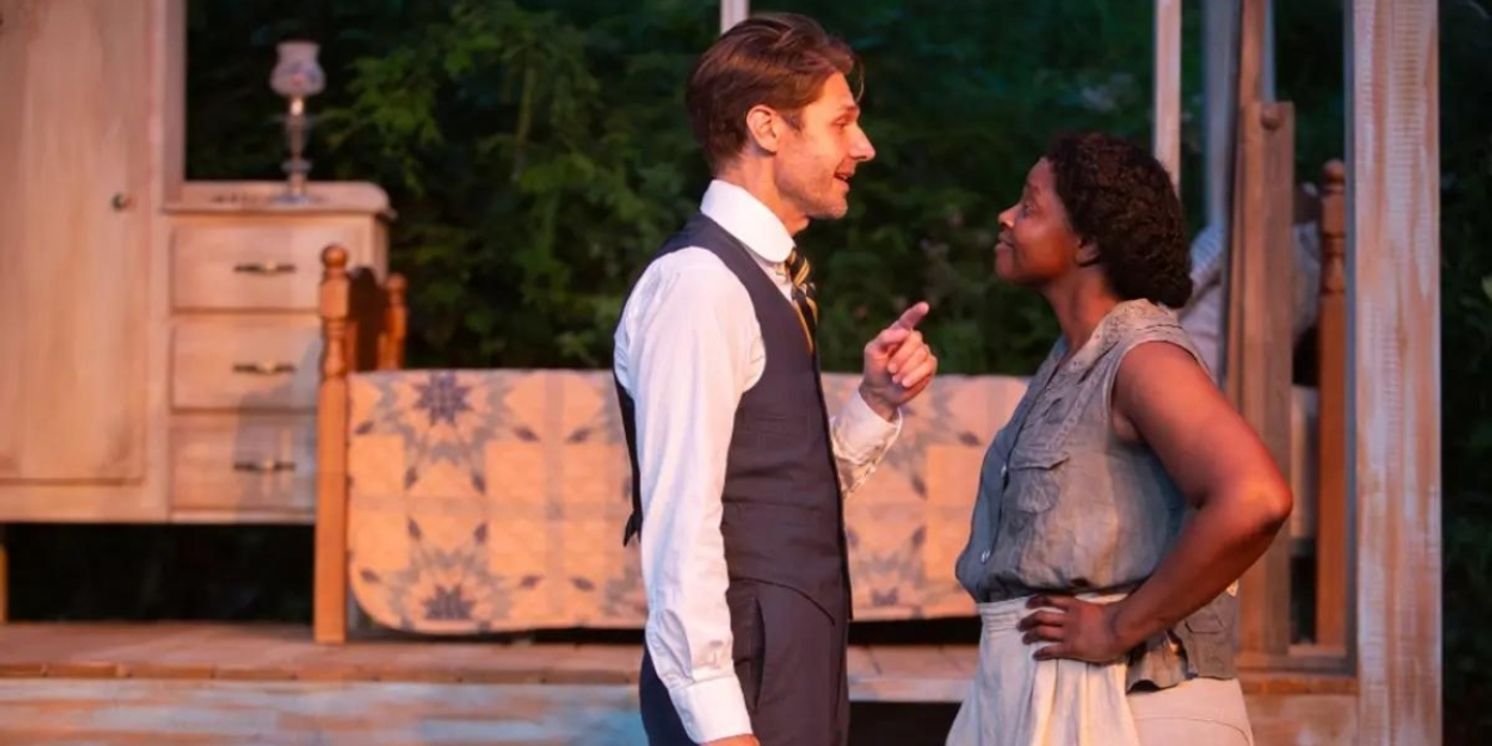Review: A MOON FOR THE MISBEGOTTEN Drops Jaws, Bombshells at Quantum Theatre
Quantum's outdoor tragicomedy is stunning and sweltering, even on a cool night

Sometimes you don't have to change a word to change the meaning of a piece... especially if you're really not changing the meaning at all. Eugene O'Neill's rural tragicomedy A Moon for the Misbegotten (a sequel/spinoff to his more famous Long Day's Journey Into Night) was originally written and staged as a "race relations" drama between the poor "shanty Irish" Catholics and the WASP upper class, depicting a time when the cultural divide there was so big it almost counted as a racial one. But (thankfully), we live in a time when the divide between "poor Irish" and "white" is almost utterly forgotten. How, then, to stage this minor masterpiece? As directed and lightly abridged by J. Cody Spellman, there are times when the deeply Irish identity of the piece peeks through, but instead the Hogan homesteading family are played as rural Black farmers. The transition is almost seamless; I only noticed the revision because I was actively looking for it.
Old Phil Hogan (Wali Jamal, a Pittsburgh favorite) has been working his patch of land for a generation, alongside daughter Josie (Melessie Clark). Josie has never thought of herself as the marrying kind, and her drinking, promiscuity and mischievous streak clearly make her out to be her father's daughter. Despite this, Phil has hatched a scheme to save their farmland by hooking Josie up with their young landlord Jamie (Brett Mack), whether by marriage, seduction or deception. An unexpected business meeting, some rotgut whiskey and a series of revelations complicate this scheme for all parties involved.
Especially in this slightly cut-down edition of the play, the divide between the first half and the second is stark: Act 1 plays almost as a farce, before steering into a poetic tragedy in Act 2. It takes three masterful actors to play both sides of this divide without ever making it seem like different versions of the same characters, and our central trio pulls it off with aplomb. Wali Jamal's Phil comes off at first like the greatest "foxy grandpa" sitcom archetype there ever was, all sly smiles and bawdy jokes and short temper; later, though, we see the hard, wounded, broken man beneath the bad-boy exterior. Melessie Clark fills Josie's Act 1 with the kind of tough, feisty good humor of Shakespeare's "sassy tomboy" comedy heroines, before pivoting gradually through Act 2 into a tragic heroine just shy of the Greek classics. Her monologues near the end of the show are heartwrenching in their mix of heightened poetic language and emotional rawness.
Brett Mack, as Jamie Tyrone, fills out the role of the landlord despite the part being written as a cipher. Tyrone is overeducated, a little effete and delicate. He's the most out-of-place city boy you could ever expect to see on a farm in the middle of nowhere; given the racial reconfiguration of the piece, he's even more a fish-out-of-water among old souls who drink hooch and sing old blues shout numbers at the top of their lungs. And yet, Mack lets us believe this wilting flower Jamie as much the Jamie we hear about but rarely see: the gambler, the sex addict, the degenerate fuckboy who loves 'em and leaves 'em and can't seem to keep the bottle out of his hands. At the climax of Act 2, the pressure to be "good Jamie" builds to a breaking point, and Mack shifts, just momentarily, into the man he is in the city. It's a moment that breaks our heart... and also scares us a little.
Staged by J. Cody Spellman on an outdoor set by Stephanie Mayer-Staley, making use both of the natural landscape and a large set of Pittsburgh Stairs, the night sky and humid summer heat add to the play's setting, since most of it is spent outdoors on a porch at night. The happiness, sadness, love, resentment and loss that fill the show are universal, a fact that is only emphasized by how the class divide at its center plays just as well with the specifics transposed. Anyone who can walk away from this show without being touched and relating to its human drama may well be misbegotten themselves.
Reader Reviews
Videos

